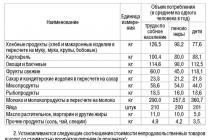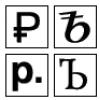Accumulation and distribution of funds of the system of compulsory medical insurance is carried out Federal Compulsory Medical Insurance Fund and territorial funds of obligatory medical insurance, operating at the regional level. The Federal CHI Fund is the recipient of CHI contributions, which are then redistributed in the form of subventions between the territorial CHI funds. The Federal CHI Fund also coordinates actions in the system, collects and analyzes information, and works to improve activities.
Figure 17.1.
Territorial CHI funds distribute funds among insurance medical organizations operating in the field of CHI. These are independent commercial insurers that have received a license to conduct compulsory medical insurance and are included in the register of insurance medical organizations. In the absence of such in the territory of the subject Russian Federation their powers are exercised by the territorial CHI fund or its branch ( structural subdivision state organization). On the this moment insurance medical organizations do not work only in the Chukotka Autonomous Okrug.
Territorial CHI funds transfer funds in accordance with the territorial CHI programs.
Basic program of compulsory health insurance- this is a document that determines the rights of insured persons for free provision to them throughout the territory of the Russian Federation medical care and establishing uniform requirements for territorial programs compulsory health insurance.
The basic program determines the types of medical care, the list of insured events, the structure of the tariff for paying for medical care, payment methods, as well as the criteria for the availability and quality of medical care, and the standards for financial support of the program.
Note!
Free medical care under the basic program is available throughout the Russian Federation.
Territorial program of compulsory medical insurance- This is a document that defines the rights of insured persons to free medical care in the territory of a constituent entity of the Russian Federation.
Each territorial program includes the types and conditions for the provision of medical care, a list of insured events, determines the values of the standards for the volume of medical care, as well as financial costs per insured person. The standard for financial support of the territorial program cannot be less than the similar standard established by the basic CHI program.
Note!
Area programs may provide additional service guarantees over the base program.
The document certifying the right of the insured person to free medical care is compulsory health insurance policy. To obtain it, a citizen will submit an application to the medical insurance organization of his choice. When applying for medical assistance, the insured person is obliged to present the compulsory medical insurance policy, except in cases of emergency medical care.
The right of the insured person to free receipt medical care is realized on the basis of concluded between CHI participants contracts:
- about financial support CHI;
- for the provision and payment of medical care under compulsory medical insurance.
Financial security agreement, concluded between the insurance medical organization and the territorial CHI fund, is a document according to which the insurance medical organization undertakes to pay for medical care provided to insured persons in accordance with the conditions established by the territorial CHI program, at the expense of targeted funds.
This contract is concluded with an insurance medical organization if it has a list of insured persons. Upon termination or suspension of a license, liquidation of an insurance medical organization, the agreement on financial support for CHI is considered terminated.
Contract for the provision and payment of medical care, concluded between the insurance medical and medical organizations - a document according to which the medical organization undertakes to provide medical care to the insured person, and the insurance medical organization undertakes to pay for it. It reflects main function insurance medical organizations related to the control of the volume, timing and quality of medical services provided to citizens when paying bills.
It should be noted that the insurance medical organization does not have the right to refuse the medical organization selected by the insured person and included in the register to conclude a contract for the provision and payment of medical care under compulsory medical insurance.
An insurance medical organization pays for the services of medical organizations in accordance with the adopted territorial program. In case of suspension or termination of the license, as well as liquidation of the medical insurance organization, the contract for the provision and payment of medical care is considered terminated. Similar consequences occur when a medical organization loses the right to carry out medical activities.
Insurance medical organizations have special expert commissions that conduct periodic checks in medical institutions for the correctness of the diagnosis, treatment, recommended medical procedures and medicines. If any violations are found, fines may be imposed, relevant bills not paid, and other sanctions applied. If the insured citizen was dissatisfied with the treatment provided to him or doubts the correctness of the established diagnosis, he has the right to contact the insurance medical organization, the policy of which he has. She can conduct an inspection in this medical organization, appoint an examination, make an appropriate presentation to the health authorities that control the activities of medical institutions. Quality control is carried out both by medical experts of the insurance medical organization, and by an expert commission under the territorial fund of compulsory medical insurance. For this purpose, an analysis insured event, compliance of the quality of the service provided with the standards (correctness of the established diagnosis and treatment, reasonableness of hospitalization, etc.).
Within the CHI system, all insured persons are provided with the same, standard services, therefore, it is practically indifferent for the insured to conclude an insurance contract with which of the insurance medical organizations operating in a given territory. To date, the differences between insurers are only in the quality of service. Its level is determined by the presence of a sufficient number of qualified personnel loyal to the insured persons, the organization and mode of operation of the dispatch service, the quality of the services of expert doctors, etc.
The procedure for paying for medical services in the CHI system is determined by the regulation adopted in the given territory - territorial tariff agreement . In it, prices for medical services are set by the territorial CHI fund, the association of insurance medical organizations, the administration of the territory, and the association of medical organizations.
In health insurance, there are four subjects, the relationship between which is carried out through contracts: the insurer, the policyholder, the insured, the provider of medical services.
INSURER - an insurance institution that collects insurance premiums, forming insurance funds providing from these funds payment for medical services and other types of monetary and material compensation provided for by contracts.
INSURANT individual or legal entity
(institution or enterprise) a person contributing under contracts
contributions to insurance funds with the insurer, ensuring
waving health insurance. Non-working policyholder
the dwindling population is the local administration, the environment
funds are allocated from the state budget according to
current level.
INSURED - persons who are provided with medical service and other types of material and monetary compensation, stipulated by the treaties medical insurance.
PROVIDER OF MEDICAL SERVICES - a medical institution (enterprise), independently practicing doctors, providing medical care to the insured in accordance with contracts and receiving payment for their services by insurers from health insurance funds.
The organizer of health insurance is an insurance organization.
Insurance organization:
1) enters into an agreement with the policyholder and receives from him
insurance premiums;
2) issues insurance policies insured persons for which they receive medical assistance;
3) enters into contracts with medical institutions and self-practicing doctors and pays for the services provided by them;
4) participates in the formation of prices for medical services and control over their quality;
5) establish insurance rates.
Insurance rates should provide payment for medical services to the insured and the direct income of the insurance organization.
Depending on the use of income, insurance organizations are divided into commercial and non-commercial.
Non-profit - use income to finance the activities of the organization and developed healthcare, but cannot risk their capital and have the right to invest only in highly reliable securities, enterprises and banks that allow the immediate return of all funds to the insurance organization if necessary.
Commercial ones are more free in their operations, they can carry out direct capitalization of their income in all legal ways, while guaranteeing the fulfillment of their obligations under medical insurance contracts. Therefore, such insurance companies widely use underwriting and reinsurance in their activities.
UNDERWRITING (eng. undrwriting, literally - subscription) - a system that allows you to study the partners with whom the contract is concluded in order to establish an insurance rate corresponding to insurance risk. health study,
conditions and lifestyle of the insured is carried out according to the medical record, testing and conversation with him. At the same time, the need and cost of his medical care is predicted, taking into account his individual characteristics.
REINSURANCE of the capital of an insurance company in more than big company, which assumes responsibility for the corresponding part of the income of a smaller company.
The main types of health insurance include:
- Compulsory health insurance - CHI;
Voluntary medical insurance - VHI.
CHI is part of social insurance, guaranteeing the population of the country social protection in the form of a certain set of medical services paid from health insurance funds. This type of insurance is
It is operated by state (for example, the Territorial CHI Fund) and non-state non-profit organizations and is controlled by the state.
CHI is characterized by: 1) mass character; 2) a guaranteed minimum of medical services; 3) a state or state-controlled organization; 4) submission to the main goals health systems.
Medical assistance is provided to the insured in accordance with the basic CHI program. The basic program determines the volume and conditions for the provision of medical and drug assistance to citizens of the Russian Federation. On the basis of the basic program of the Russian Federation in the regions, a territorial program of mandatory medical insurance is developed and approved, the volume of medical services provided, which cannot be less than the volume established by the basic program. Control over the quality, volume and timing of the provision of medical care is carried out by the insurance medical organization, as well as by the authority health management.
In accordance with the program, citizens are guaranteed: 1) provision of primary health care, including emergency medical care, diagnosis and treatment in outpatient settings(including emergency and pre-hospital care), implementation of disease prevention measures; 2) inpatient care.
The volume and conditions of drug assistance are determined by the territorial CHI programs. Payment for the necessary medicines and medical products in a hospital and in the provision of emergency and emergency medical care is carried out at the expense of insurance premiums for CHI. and in outpatient clinics - at the expense of personal funds of citizens.
VHI- can be independent and additional, being additional to the obligatory one. It can be individual and group, it is carried out by various, often commercial insurance companies, on the basis of various packages of insurance programs, at differentiated rates, using age-related insurance (as a rule, at higher rates;
Insurance medical organizations offer a choice of medical institutions and doctors, different kinds medical insurance policies (diagnostics, outpatient, inpatient, dental care). Voluntary insurance funds may be used by the insurer for commercial purposes.
In general, VHI, removing part of the financial burden from the public health system, provides high-quality medical care for certain groups of the population, more service than in within the CHI. At the same time, medical services become less expensive for the population than their full private payment. Part of the funds in accordance with the terms of the contract can be returned to the country
as a premium for a healthy lifestyle and well-preserved health, stimulating concern for the preservation and promotion of health in the interests of society. Comprehensive (complete) health insurance involves: 1) hospital insurance (inpatient and outpatient, including payment for surgical interventions); 2) drug insurance (provision of drugs at the expense of insurance funds); 3) dental insurance; 4) preventive insurance; 5) rehabilitation insurance; 6) insurance against accidents with.> guchaev and injuries; 7) insurance in case of temporary disability; 8) permanent disability insurance: 9) women's reproductive insurance, 10) life insurance.
The listed types of insurance can be used most widely by private insurance companies. In the future, comprehensive health insurance can also be used in the compulsory medical insurance system.
The health insurance system provides citizens with the right to:
1. OMS and DMS.
2. Free choice of medical insurance company.
3. Free choice of a medical institution and a doctor in accordance with the MHI and VHI agreements.
4. Obtaining medical care throughout Russia, including outside the permanent place of residence.
5. Receipt of medical services of appropriate scope and quality terms of the contract, regardless of the amount of the paid insurance premium.
6. Filing a claim against an insured, an insurance medical organization, a medical institution, including for material compensation for what was caused through their fault
damage, regardless of whether it is foreseen or not in the health insurance contract.
7. Refund of a part of insurance premiums for VHI, if it is provided for by the terms of the contract.
Table 1
Features of CHI and VHI
| ome | VHI | |
| non-commercial | Commercial | |
| Is kind | Social Security | Personal insurance |
| Nature of insurance | General or mass | Individual or group |
| Regulated by Law | "On medical insurance of citizens in the Russian Federation" | "On insurance", "On medical insurance of citizens in the Russian Federation" |
| Who is carried out | Government and government-controlled entities | Insurance organizations of various forms of ownership |
| Who determines the rules of insurance | State | insurance organization |
| Who is the insured | State (local executive authorities), employers | Legal and individuals |
| Sources of funds | - contributions from employers; - the state budget | - personal income citizens; - employers' profit |
| Health insurance program | (guaranteed minimum service) is approved by the authorities | Determined by the agreement between the insurer and the insured: |
| Tariffs are set | According to a single approved methodology | Agreement between the insurer and the policyholder |
| Quality control system | Determined government bodies | Established by the agreement of subjects of insurance |
| Proceeds can be used | Only for the main activity - health insurance | For any commercial and non-commercial activity. |
LEGAL FRAMEWORK
What is the OMS system? How do individuals, insurers and FFOMS interact in it? What makes it possible to count on the provision of medical care free of charge? We will consider these and other questions in more detail.
What is OMS?
Compulsory health insurance (hereinafter referred to as CHI) is a type of compulsory insurance, which determines the possibility of free provision of medical care to the insured person in the established volumes and cases.
Who according to the current legislation is the insured person?
These are individuals who are insured under compulsory medical insurance. Insured persons can be classified into two groups - working and non-working citizens.
The group of "working citizens" includes:
- employed persons (who are in labor relations with organizations or have entered into a civil law contract);
- self-employed population individual entrepreneurs, notaries, lawyers);
- members of peasant (farm) households;
- members of family (tribal) communities of indigenous peoples of the North, Siberia and Far East Russian Federation, living in the regions of the North, Siberia and the Far East, engaged in traditional industries.
The group of "non-working citizens" includes:
- children (under the age of 18);
- non-working pensioners;
- students, full-time education, in higher and secondary professional educational institutions;
- officially registered unemployed citizens;
- persons engaged in caring for a child under the age of 3 years, and citizens engaged in caring for children with disabilities, disabled people of group I, persons who have reached the age of 80 years.
What are the insured entitled to expect? CHI persons?
First of all, the main possibility of compulsory medical insurance is the free provision of medical care throughout Russia (within the framework of the basic CHI programs). Also, citizens have the right to choose an insurance medical organization.
What are the obligations for the insured persons?
In accordance with the current legislation, citizens subject to compulsory health insurance must:
- submit a compulsory medical insurance policy when applying for medical assistance;
- submit an application to the insurance organization for the choice of this organization;
- notify the insurance medical organization of any change in personal data (last name, first name, patronymic, place of residence) within one month from the date of these changes;
- make a choice of an insurance medical organization when changing the place of residence;
Who is a CHI insurer?
Article 11 federal law No. 326-FZ, the insurers are:
- Persons making payments and other remuneration to individuals:
- organizations;
- individual entrepreneurs;
- individuals who are not recognized as individual entrepreneurs; - Individual entrepreneurs engaged in private practice, notaries, lawyers.
We note that the insurers for non-working citizens are the executive authorities of the constituent entities of Russia and other organizations determined by the Government.
Insurer for compulsory health insurance is the Federal Compulsory Medical Insurance Fund(FFOMS) and its territorial bodies(TFOMS).
One of the main participants in the CHI system is a medical insurance organization - an insurance organization that has an appropriate license in the field of insurance activities and which exercises certain powers of the insurer. Also, medical institutions of all organizational and legal forms (state, municipal and private) participate in the CHI system.
Features of medical insurance in the Russian Federation (history of formation). Federal, regional Programs state guarantees to provide the population with medical care.
The need for health insurance stems from the main features of the medical services market, one of which is "uncertainty".
For each person, the disease is most often unpredictable, therefore it is impossible to “plan” its onset, and with it the need for financial costs (for medicines, examinations, treatment, for everyday needs in case of disability) is impossible. Moreover, assistance can be very costly and unaffordable if a one-time payment is required. Insurance can counter the financial burden of unpredictable and uncertain costs. At the same time, people, as a rule, are not insured against ill health, but against future financial costs associated with this.
As health insurance purposes can be called:
A guarantee to citizens at the expense of funds accumulated in insurance funds for obtaining medical care of a certain quality in the event of an insured event - illness, injury, accident, etc.;
A guarantee to the manufacturer of medical care to pay for the costs associated with the provision of medical care to insured citizens.
The set goals can be achieved by solving the following complex health insurance tasks :
creation of a system of subjects - legal entities who are legally responsible for the formation of medical and technical conditions to ensure the provision of high-quality medical care to the population;
decentralization of a rigid system of healthcare management, granting the right to make decisions to healthcare institutions, ensuring from a legal point of view their activities as independent economic entities;
demonopolization state system health care, ensuring participation in the health insurance system of medical service providers, regardless of their form of ownership;
ensuring legal and socio-economic protection of the interests of consumers of medical services using the institution of qualified intermediaries (insurance companies);
strengthening and expanding the use of economic management methods: on the part of the manufacturer - the creation of economic interest in the results of their work, on the part of the consumer - the cultivation of personal responsibility for their health, as well as the creation of conditions for interest in maintaining and strengthening health.
The law "On health insurance of citizens of the RSFSR" was adopted on June 28, 1991, but it turned out to be not entirely efficient, since it did not contain a clear implementation mechanism. Therefore, by the law of April 2, 1993 No. “On Amendments and Additions to the Law of the RSFSR “On Medical Insurance of Citizens in the RSFSR”, amendments were made to the original law of June 28, 1991, which actually marked the beginning of a large-scale formation of the medical insurance system.
The law determined two kinds health insurance, each of which has its own principles and financial mechanism for implementation - mandatory and voluntary (comparative analysis is presented in Table 1). According to Art. 1 of the law "On health insurance of citizens in the Russian Federation" compulsory health insurance is an integral part of state social insurance, which provides all citizens of the Russian Federation with equal opportunities to receive medical and drug assistance in the amount and on conditions corresponding to compulsory medical insurance programs. That is, compulsory medical insurance has a state character, is universal and is a form of social protection of the interests of the population in the preservation and restoration of health in the difficult socio-economic conditions of the country's transition to tough market relations. y Main principles of CHI:
persist positive sides state health care system - free medical care (at the time of receipt) within the CHI program, universality and accessibility;
the principles of "social justice" and "social solidarity" are used, when "the rich pay for the poor", "healthy for the sick" (such principles are incorporated into the health insurance systems of most states with a socially oriented economy);
due to the high degree financial risk this species insurance is irrevocable;
the choice by the patient of a doctor and health care facilities (within the framework of compulsory medical insurance agreements) essentially implies the abolition of the precinct-territorial principle of organizing medical care, and the role of primary medical and social care is significantly increasing.
Compulsory health insurance, its subjects
As noted earlier, compulsory health insurance in the Russian Federation is an integral part of state social insurance. The structure of the compulsory medical insurance system includes the following subjects: a citizen (insured person), an insured person, a medical insurance organization (CMO), a medical institution.
Citizen (insured)
Citizens of the Russian Federation in the health insurance system (Article 6 of the Law) have the right to:
compulsory and voluntary health insurance,
choice of QS;
the choice of a medical institution and a doctor in accordance with the contracts of compulsory and voluntary medical insurance;
receiving medical care throughout the Russian Federation, including outside the permanent place of residence;
receipt of medical services corresponding in volume and quality to the terms of the contract, regardless of the amount of the actually paid insurance premium;
filing a claim against the policyholder, medical insurance organization, medical institution, including for material compensation for damage caused through their fault, regardless of whether it is provided for in the health insurance contract or not;
Repayment of a part of insurance premiums for voluntary medical insurance, if it is determined by the terms of the contract.
Persons without citizenship on the territory of the Russian Federation have the same rights and obligations in the MHI system as citizens of the Russian Federation (Article 7 of the Law). Medical insurance of citizens of the Russian Federation who are abroad, as well as foreign citizens temporarily staying in the Russian Federation, is carried out on the basis of bilateral agreements between the Russian Federation and the countries of residence of citizens, or in the manner established by the Government of the Russian Federation.
Medical insurance is carried out on the basis of contracts concluded between insurance medical organizations and insurers. Each citizen in respect of whom an insurance contract is concluded receives an insurance policy. The insurance policy is in the hands of the insured
The form of an insurance medical policy for CHI is approved by the Government of the Russian Federation.
The CHI medical insurance policy is valid throughout the territory of the Russian Federation, regardless of the place of its issue, as well as in the territories of other states with which the Russian Federation has agreements on medical insurance of citizens.
Policyholder
The insurers under OMS are:
for the non-working population (children, pupils and full-time students, pensioners, disabled people registered in in due course unemployed) - executive authorities of the respective administrative territory;
for the working population - enterprises, institutions, organizations, self-employed persons and freelancers, i.e. persons of creative professions who are not united in creative unions.
The insured has the right on the(from Article 9 of the Law):
participation in all types of health insurance,
free choice of insurance company,
control over the fulfillment of the terms of the medical insurance contract.
(The insured company has the right to raise funds from the profits for VHI of its employees).
The insured is obliged:
conclude an MHI agreement with an insurance medical organization,
make contributions in order established by law and health insurance contract
within its competence, take measures to eliminate adverse factors affecting the health of citizens.
The structure of the compulsory health insurance system consists of several interconnected links. Each structural unit is endowed with specific functions and responsibilities.
In Art. 9 of the Federal Law No. 326 singles out the subjects of compulsory medical insurance and its participants.
Insured, policyholders and Federal Foundation are subjects of compulsory medical insurance (Article 9, Clause 1 of the Federal Law No. 326).
According to paragraph 2 of article 9 of the Federal Law No. 326, territorial funds, insurance organizations, institutions engaged in medical activities, are participants in compulsory medical insurance.
To begin with, let's define the object of compulsory medical insurance, the object of insurance in a broad sense should be understood as all those events that can occur regardless of our will or actions and have a negative impact on health, in which there will be a need to receive medical care. In a narrow sense, with compulsory health insurance, an insured risk is insured, that is, an event that has not yet taken place. The system of compulsory health insurance operates the so-called principle of solidarity of insurance participants, which consists in the fact that insurance payments, contributed for a specific person to compulsory medical insurance funds are not returned back, even if insured event did not happen, but go to provide medical care to other people.
An individual who is covered by the compulsory health insurance program is an insured person.
The insured is any citizen of Russia, regardless of gender, age, race, as well as foreigners permanently or temporarily residing in the Russian Federation, stateless persons, refugees in accordance with Federal Law No. 390 of December 28, 2013 "On Refugees".
According to Article 10 of the Federal Law No. 326, the insured are: employment contract, individual entrepreneurs, non-working citizens, children from birth to adulthood, non-working pensioners, full-time students, members farms and family communities.
The presence of a compulsory medical insurance policy gives the insured the main right - the right to receive free medical care throughout the Russian Federation, to the extent that is fixed by the basic program of compulsory medical insurance. The policy is a kind of contract between the insured, the insurance medical company and medical institution.
The number of insured persons in the Russian Federation, according to the Federal Compulsory Medical Insurance Fund, at the beginning of 2016 is 146,548,831 people, while 5,416,817 citizens are insured in St. Petersburg. Information portal of the Federal Fund for Compulsory Medical Insurance of the Russian Federation [ Electronic resource] URL: http://www.ffoms.ru// (accessed 08.02.2016).
Insurers are entities that pay insurance premiums to the CHI system to provide insured citizens with medical care in the event of an insured event.
In accordance with Art. 17 of the Federal Law No. 326, policyholders have certain rights and obligations. For example, the policyholder has the right to receive information about changes, adjustments to the conditions and amount of payment of insurance premiums, freely choose an insurance company. The insured must fulfill the following obligations: register and de-register for the purposes of compulsory health insurance, pay insurance premiums in a timely manner and in full. Clause 2 of Art. 17 of the Federal Law "On Compulsory Medical Insurance in the Russian Federation" dated November 29, 2010 No. 326-FZ. In red. dated 2015 N 432-FZ // SZ RF. 2010, No. 49, art. 6422; 2016, N1 (part I), art.52. - [Electronic resource] URL: http://www.base.consultant.ru (accessed 05.02.2016)
For the working population, insurers are employers, for the non-working population, they are executive authorities (Councils of Ministers of the republics within the Russian Federation, government controlled cities of Moscow, St. Petersburg, autonomous regions, territories, and so on). In addition, the insurers are individual entrepreneurs who use hired workers, notaries and lawyers in private practice.
The rate for insurance payments is set as a percentage of the accrued wages. As mentioned above, in 2016 this tariff is 5.1%.
Main structural units compulsory health insurance are the Federal and Territorial Compulsory Insurance Funds. They are formed as autonomous non-profit financial and credit organizations to carry out state support in the field of compulsory health insurance.
The Federal Fund (hereinafter FFOMS) acts as an insurer for compulsory health insurance. We can say that this is a body of public health protection. The Fund carries out its activities in accordance with the legislation of the Russian Federation, is formed by the Federation Council and the Government of the Russian Federation.
For the most part, the Federal Fund performs the regulatory and coordinating management of the CHI system.
The Territorial Compulsory Medical Insurance Fund (hereinafter referred to as TFOMS) refers to the participants in the insurance system. This fund, acts as an insurer, implementing territorial insurance programs on the territory of the constituent entities of the country.
Territorial funds occupy a central place in CHI structure, since it is they who own the distribution and accumulation Money. They are formed in each of the subjects of the Russian Federation by the bodies of representative and executive power of the subjects and have their branches in cities and regions.
The next link in the structure of the compulsory health insurance system is medical insurance organizations, they also belong to the subjects of insurance.
An insurance medical organization (hereinafter referred to as CMO) is an organization that operates as a direct insurer. It must have a license for its activities, have a certain authorized capital for 2016 in the amount of not less than sixty million rubles, must be included in the register of medical insurance organizations. Compulsory medical insurance of citizens may involve insurance medical organizations with any form of ownership, having state permission(license) for the right to engage in health insurance. The main task of the insurance medical organization is the implementation of compulsory medical insurance by paying for medical care provided to citizens in accordance with the territorial program of compulsory medical insurance. HIOs control the volume and quality of medical services, as well as ensure the protection of the rights of the insured, up to presentation in judicial order claims to a medical institution or a medical worker for material compensation for material or moral damage caused to the insured through their fault.
The role of medical healthcare institutions - polyclinics, hospitals - is to provide medical services to insured citizens in accordance with basic and territorial health insurance programs.
Under medical service should be understood as an event, or a set of events aimed at preventing diseases, diagnosing and curing them, having a complete meaning and a specific price.
Medical institutions, both private and public, must have a license to carry out medical activities and be included in the register of medical organizations. They can carry out their activities not only in the compulsory medical insurance system, but also in the system voluntary insurance, as well as in the system of paid services.
Medical institutions are financed by insurance medical organizations on the basis of presented invoices. Payment of bills is carried out according to tariffs in accordance with the volume of medical care provided by the institution. For outpatient clinics, such a unit of care is a medical visit, for inpatients, a completed case of hospitalization.














